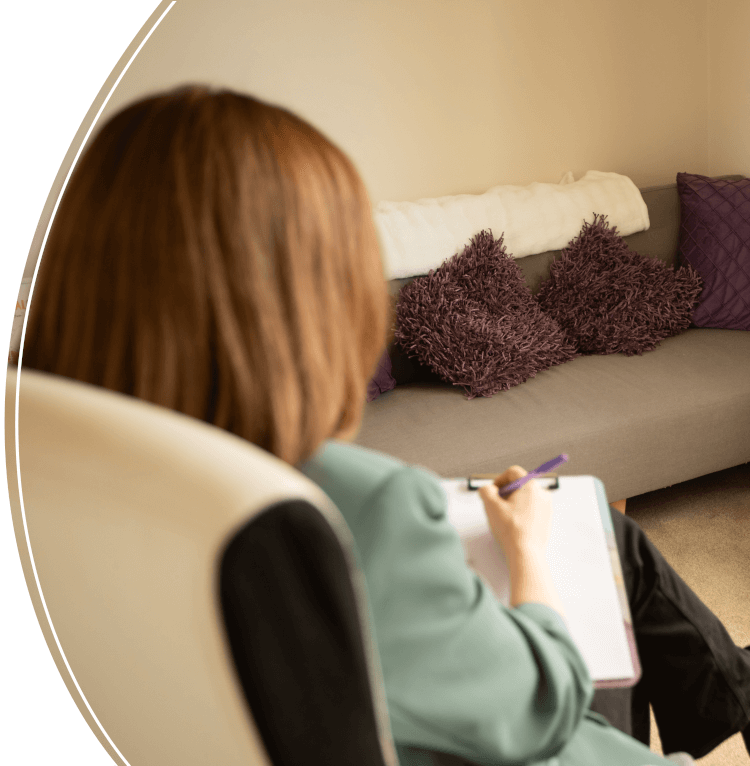Restoring rest: why quality sleep matters in midlife

We all know that good quality sleep is important. But, until we start experiencing poor sleep, we don’t tend to give it much thought. And then….well, it becomes a very real issue.
If you’re finding yourself wide awake in the early hours, your mind ticking over with everything and nothing, you’re not the only one.
Disturbed sleep is an incredibly common challenge of perimenopause and menopause. And when it starts affecting your nights, it soon touches everything else too.
Let’s gently explore why this happens, and how you can begin to get back the rest you need and deserve.
Why sleep becomes so precious in midlife
Sleep isn’t just a “nice to have”. It’s a vital part of how your body and mind restores, regulates, and recovers. Especially during midlife, when you’re navigating so many hormonal and emotional shifts.
When you’re sleeping well, it supports:
- Emotional wellbeing – helping you feel more balanced, calm, and able to cope.
- Mental clarity – improving memory, focus, and decision-making.
- Hormone regulation – including cortisol (stress), insulin (blood sugar), and even appetite.
- Immune support – as your body repairs and replenishes overnight.
But when sleep is disrupted, it’s no surprise you may feel foggy, low, more anxious, irritable or just not quite yourself.
What’s behind sleep disruption in perimenopause and menopause?
During this phase of life, fluctuating oestrogen and progesterone can really impact your natural sleep rhythms. Many women experience:
- Difficulty drifting off or staying asleep.
- Night sweats or hot flushes.
- A racing mind or anxious thoughts.
- Restless nights or vivid dreams.
- Waking up feeling tired, flat, or unrefreshed.
None of this means you’re doing anything wrong. It’s a natural response to all those big internal changes. But that does not mean you have to just ‘put up with it’.
A gentle brain-based forward focused way through
This is where Solution Focused Hypnotherapy can be such a supportive tool and approach. It’s not about dwelling on the past or trying to “fix” anything. Instead, we gently focus on what’s already going well and build on that. One small, meaningful and empowering step at a time.
Through a combination of talking therapy and guided hypnosis (a deeply relaxing, natural state a bit like daydreaming), hypnotherapy can help:
- Soothe your busy mind – easing those racing thoughts that stop you from drifting off or wake you at 3 a.m.
- Lower stress and anxiety – helping your nervous system settle and restore.
- Encourage healthier sleep patterns – so you’ll be able to drift off more easily and stay asleep for longer.
- Rebuild your confidence – in your body, your rest, and your ability to cope.
Simple, supportive steps to encourage better quality sleep
Here are some small, helpful habits that you can explore to support more restful sleep. These aren’t about strict rules, instead gentle adjustments that can really make a difference over time:
- Establish a consistent sleep schedule – aim to go to bed and wake up at the same time each day, even at weekends, to help to regulate your circadian rhythm (your body’s internal clock).
- Create a calming bedtime routine – this might include reading, taking a warm bath, or practicing relaxation techniques to help you ease into rest.
- Make your sleep environment cool, dark, and quiet – a peaceful space promotes deeper, more undisturbed sleep.
- Limit screen use before bed – reducing exposure to blue light and creating a technology-free zone in your bedroom can support a more restful wind-down.
- Avoid caffeine, heavy meals, and stimulating activities close to bedtime – give your body and mind time to settle.
- Build journaling in to your bedtime routine – writing down your worries before bed and importantly, focusing on the positive aspects of your day can help you to clear your mind, reduce racing thoughts and promote relaxation and a positive mindset.
- Get some movement and daylight during the day – around 30 minutes of gentle exercise or time outside can support your natural sleep rhythms.
- Use guided relaxation – listening to calming verbal cues can calm your mind and relax your body easing you into a restful state, making it easier to fall asleep.
These tips are simple, but when combined with the calming benefits of hypnotherapy, they can really support you in creating a kinder, more consistent sleep routine.
Prioritise your self-care as you deserve rest
I truly believe that midlife isn’t just a time of change, it can also be a time of rediscovery. A time for you to reconnect with you, your needs, and your inner strength.
If sleep has become something you dread, it’s completely understandable. Disrupted rest can take its toll on us, but it doesn’t have to stay that way.
Remember self-care isn’t a luxury, it’s vital to your physical and mental health and wellbeing. You deserve to wake each morning feeling rested, restored, and ready to meet the day.
One gentle meaningful step at a time, I can support you to find your inner freedom from what’s holding you back and move forward and make those positive steps towards peaceful nights and brighter, more energised mornings. You can read more on my poor sleep and insomnia page Hypnotherapy for Insomnia in Nottingham – Katie Deacon or you can contact me for a free 45 minute consultation by email at katie@katiedeacon.co.uk.
More Blog Articles







